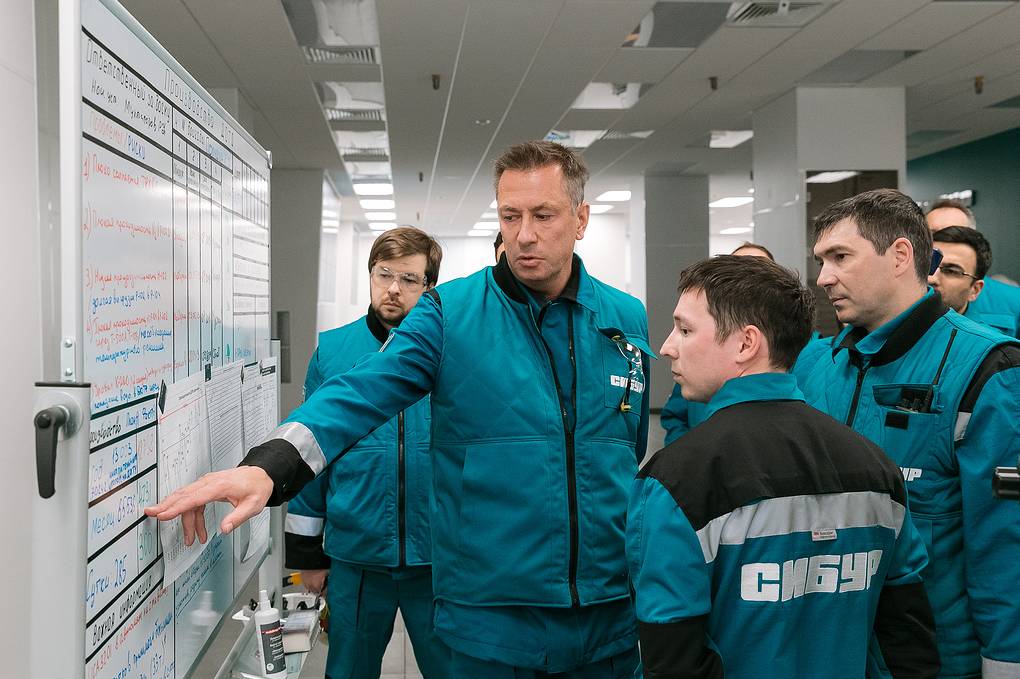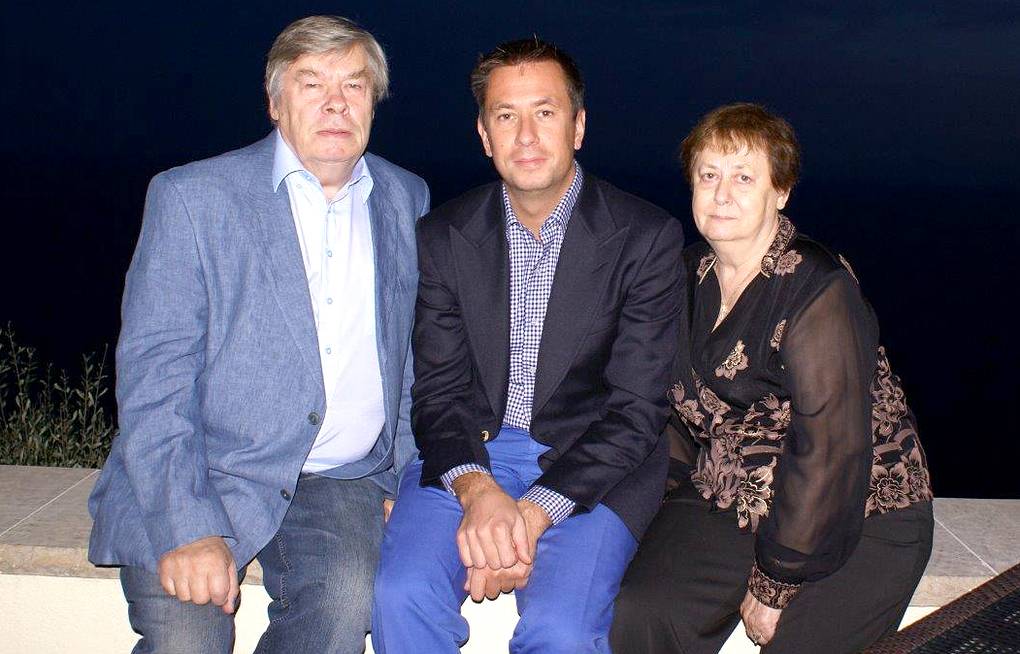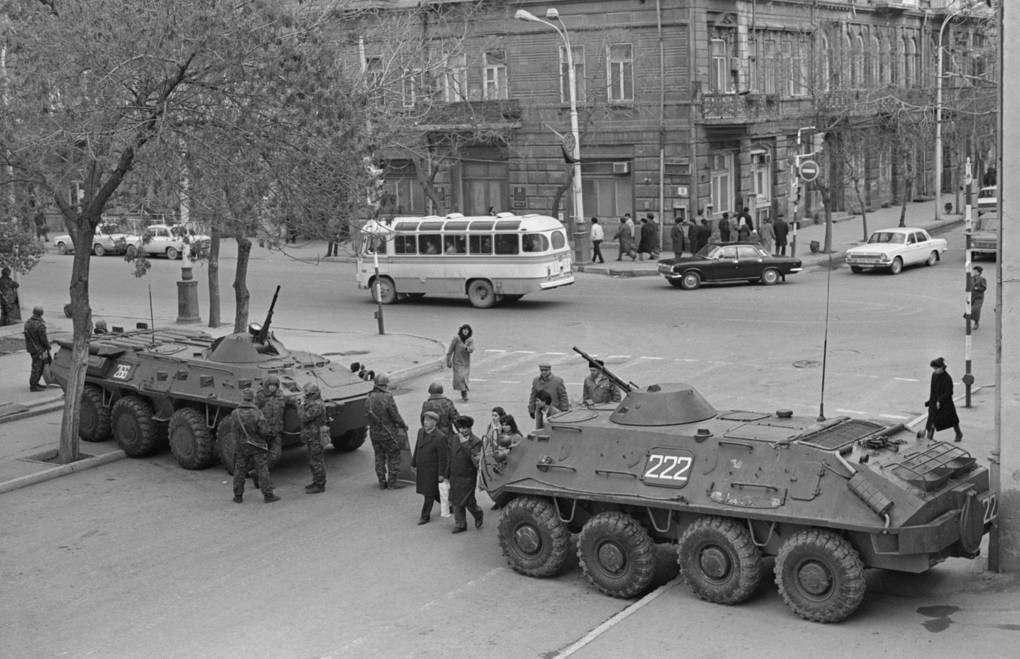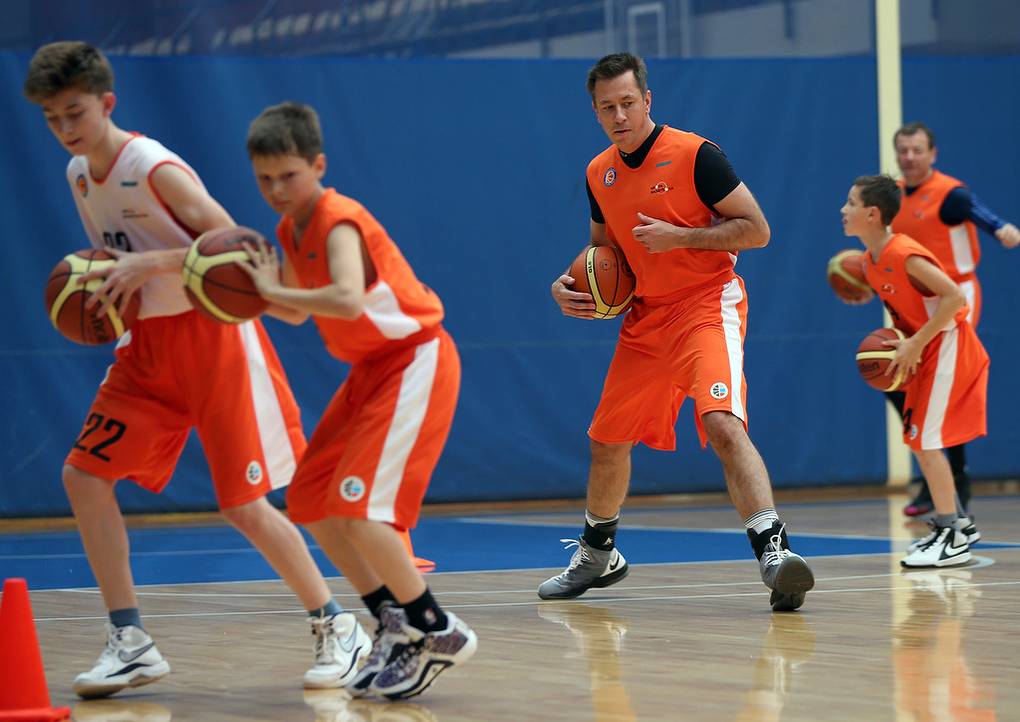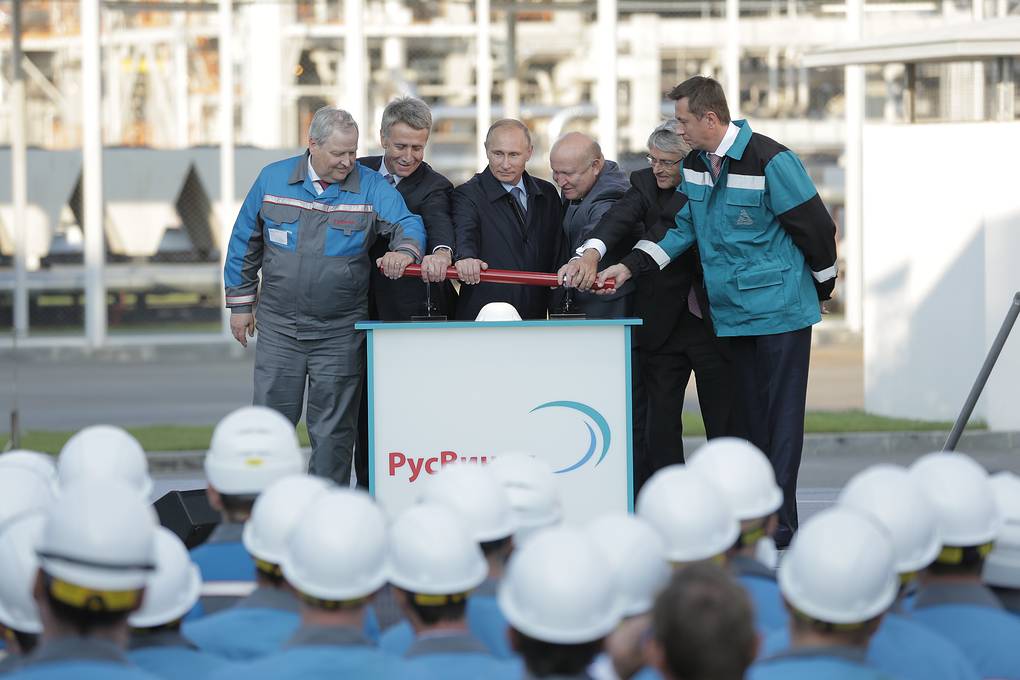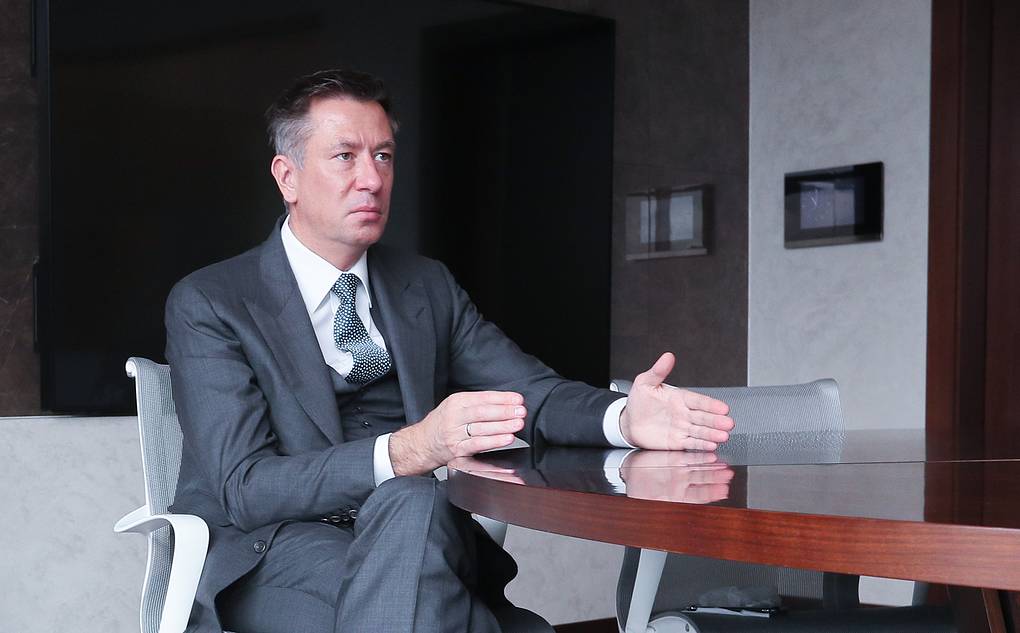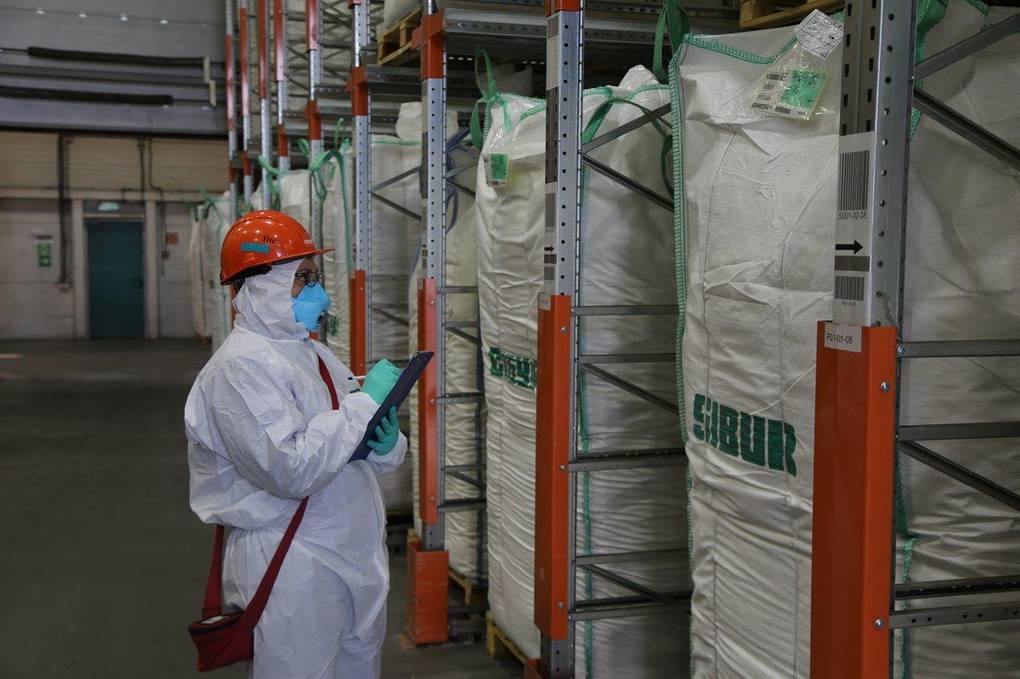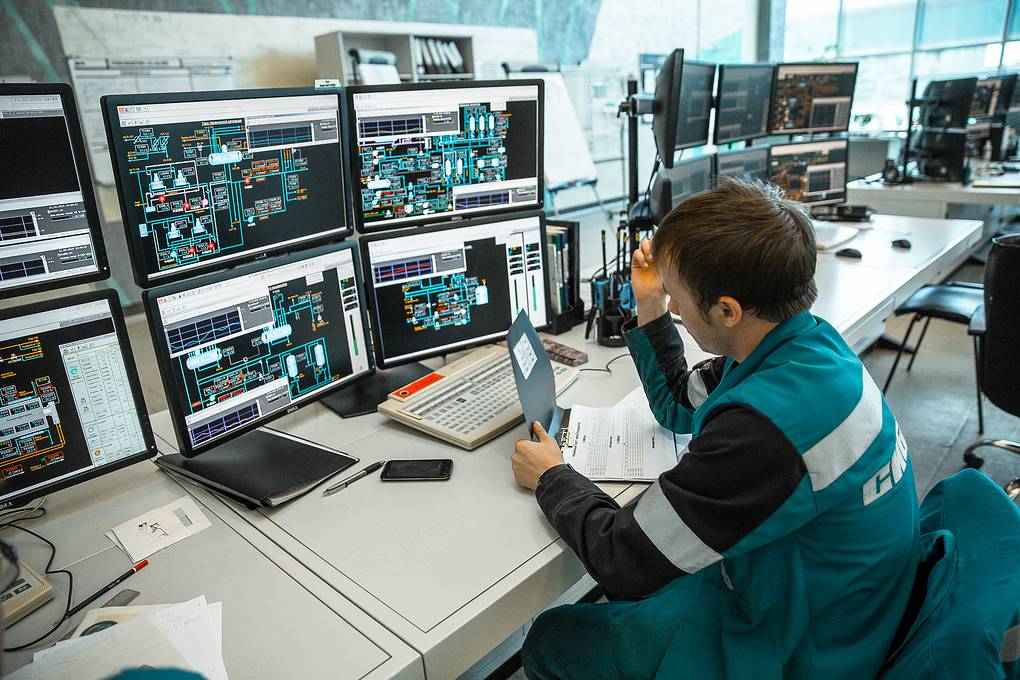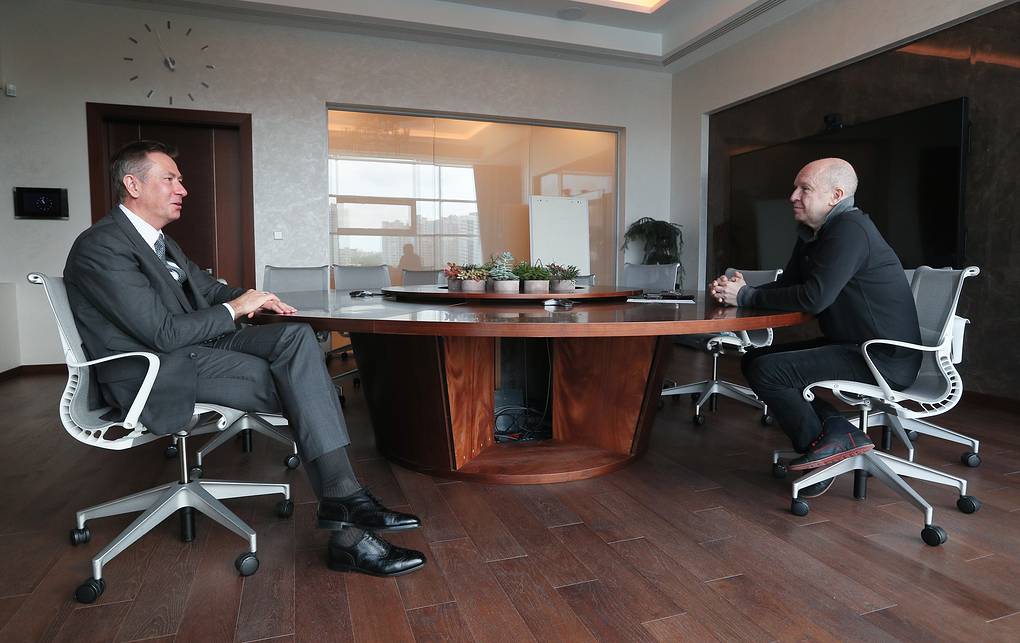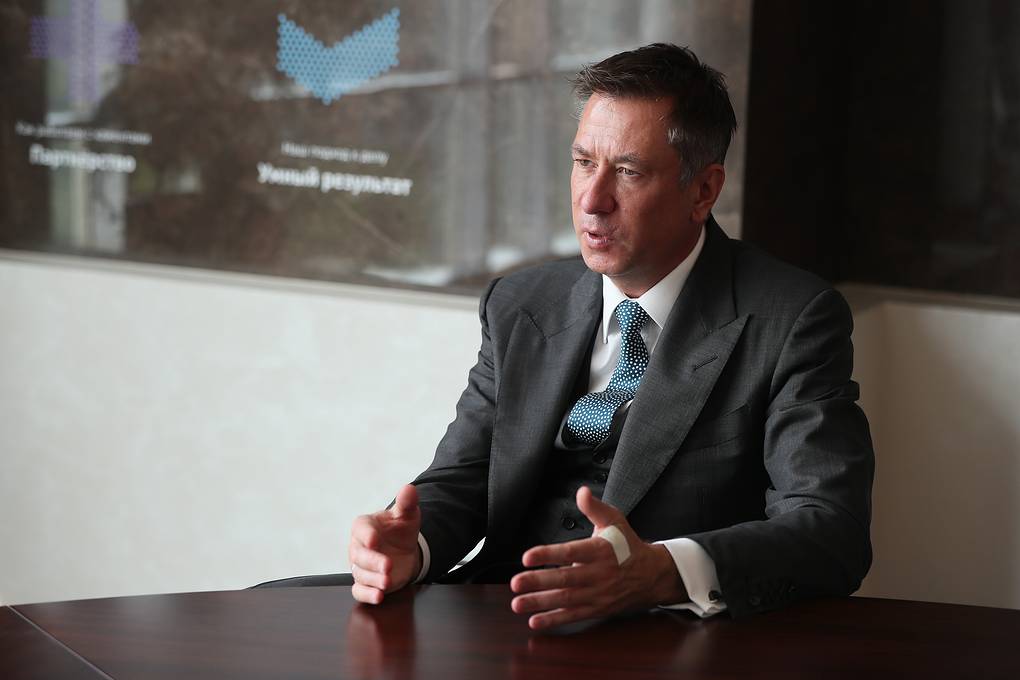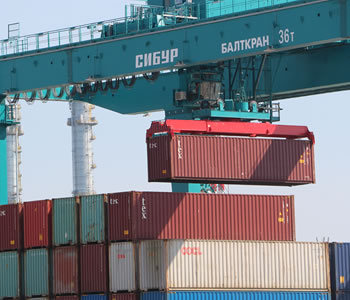Part 1
On big shots and average performers, MGIMO University, military service, MBA, basketball, and an incident in Berlin
I have a friend who
likes to say: “Everyone is different". It's a universal formula that can
explain away anything, fr om pulling a scam to accomplishing a feat. Top
officials in business are also different, but perhaps you, Dmitry, can see some
commonalities that have helped you and people like yourself to become who you
are today?
First, we need to get on the same page
regarding the terminology, so we understand exactly who we are talking about.
Movers and shakers,
CEOs of Russian majors, people fr om the Forbes List.
There are a lot of people there who made a
fortune in the 1990s and then managed it as an investment. Today, you will not
see these people at the helm of large companies, including state corporations.
So the Forbes List is not exactly about business leaders.
The way I see it, the top 30 do not
change much, and over the recent decades these have been the same people, while
spots fr om No. 50 downwards are in a state of constant flux. In the
middle, there are many people who had amassed capital and then lost it.
When Leonid Mikhelson, Chairman of Novatek’s Management Board, acquired the controlling stake in SIBUR ten years ago, he chose not to build from scratch, allowing the company's management team to prove themselves and show their professional skills. As we still work together, I guess we successfully proved our mettle, although they keep testing us, setting new goals and evaluating the way we deliver. I believe this is absolutely the right and logical approach
There are others who were moving towards
their position in the list step by step – slowly and with deliberation.
Even among those though, there are only a handful of people whose paths are
similar to mine: executives who have become wealthy by managing companies. But
still, all of us took different roads to get there.
So, nothing in common?
Again, me and my kind are not business
owners, we are the ones accountable to them for performance. Shareholders keep
putting us to the test to see if we can deliver what they expect.
When Leonid Mikhelson, Chairman of Novatek’s Management Board, acquired
the controlling stake in SIBUR ten years ago, he chose not to build fr om
scratch, allowing the company's management team to prove themselves and show
their professional skills. As we still work together, I guess we successfully
proved our mettle, although they keep testing us, setting new goals and
evaluating the way we deliver. I believe this is absolutely the right and
logical approach.
Is it typical for a
new business owner to keep the old team?
I think it’s an exception. However, in my
opinion, it’s deeply rooted in the company’s history and derives fr om the goals
established by the shareholders. For a long time, since the moment of its
inception in the mid-1990s, SIBUR was not viewed as a promising asset with
profit potential. In the early 2000s, it used to be Gazprom's pain in the neck,
but once the company came under the control of new shareholders, it started its
transformation fr om a benchwarmer into a successful and sustainable
petrochemical player, even by global standards. Since then, everything has
changed, and the business has made a fresh start.
Were you invited to
SIBUR by Alexander Dyukov, today’s Chairman of the Management Board and CEO of
Gazprom Neft?
Here's how the story goes. I was head of
corporate finance at Bank Trust. My client got embroiled in a major conflict
over the restructuring of corporate ownership and hired people to help him out
of it. I had contact with this team, and with one of them, who was later
invited by Alexander Dyukov to SIBUR, we developed a friendly relationship in
the course of this cooperation. When they needed an executive with the
management experience I had, this person introduced me to Mr Dyukov, and I
got a job offer. I did not accept right away though. I don't like dredging up
this story...
Fact is, Bank Trust was part of Bank Menatep’s banking group. It might have looked as if I agreed to move to SIBUR only when Messrs Lebedev and Khodorkovsky hit the rough patch
Fact is, Bank Trust was part of Bank Menatep’s banking group. It might
have looked as if I agreed to move to SIBUR only when Messrs Lebedev and
Khodorkovsky hit the rough patch.
Like jumping a
sinking ship?
These events did coincide in time, but in
reality things were quite different. I was forced to leave the bank due to a
serious disagreement I had with its former major shareholders, who now live in
London. I owned a relatively small stake that I sold to these shareholders
later. By the way, the proceeds fr om the sale became a strong financial support
for me during my early time at SIBUR, when my earnings were quite modest.
Did you have any
contact with Mr Khodorkovsky at Bank Trust?
He and Mr Lebedev were my clients, but
I was not part of their inner circle. I reported to Ilya Yurov.
I thought about leaving at the end of
summer 2003, and when I was thinking where to head for, I looked at the
companies I knew, including those in the list of my bank clients. In the end, I
chose SIBUR because I saw the holding company’s unique position and potential.
Besides, aware of the terrible state it was in, I wasn’t afraid to take risks:
things couldn’t really be made worse. It was long past rock bottom.
And you had quite a
vague idea of petrochemistry?
Not the slightest idea, actually. But I was
hired to take on challenges that I knew how to handle, such as asset
restructuring and realigning of the corporate structure. In addition, I was to
deal with debt due to Gazprom: figure out its scope and find a way to settle
it.
How much money are we
talking?
About two and a half billion dollars.
Importantly, SIBUR’s contingent EBITDA in 2002 was zero. The two years
before that were incredibly tough for the entire petrochemical industry. If you
look up the difference between the cost of raw materials and finished product
prices, you will see that in the next (or even preceding) twenty years it was
never as bad.
SIBUR’s assets required investment to fuel
recovery and development. Where do you get the money if you can't borrow any
more? After all, a lot of money had already been borrowed to acquire said
assets. SIBUR was de facto bankrupt.
Did the fact that you
completed an MBA programme play a role in your career?
Certainly, eleven months of study in
Switzerland weren’t spent in vain. I had a lot of background in various
financial areas, and at some point I succumbed to a delusion that I was already
well versed in life. The MBA programme showed me things I couldn’t see based on
merely absorbing information and perspectives a manager needs to possess.
Figuratively speaking, a business school shows you the essential ropes, and
gives an idea of all the elements that go into the functioning of any
particular business. I found that I did not know a lot of things, and that the
world is much bigger than what I imagined.
In the central control room of SIBUR’s Perm facility during an inspection round
© SIBUR Holding’s Press Service
Another useful lesson learned in the
business school is to respect the opinions of your team mates. Without it, you
can’t make progress. You had to reach an agreement in discussions with your
colleagues, otherwise you were literally not allowed to go to bed. The
organisers deliberately paired together participants who were diametrically
opposed to each other: for example, an introverted Chinese guy with a
super-active and sociable Portuguese guy. The class of
eighty-four students was divided into groups of seven, and each month we were
reshuffled, having to start building relationships and establishing a common
ground fr om scratch.
Did you want to study
yourself or was it your employer who sent you?
I was preparing for GMAT, an entrance exam
to the business school, at a difficult time in my life. During the crisis of
1998, Renaissance investment banking group sacked a significant portion of its
employees in just three days. I was in this unfortunate crowd, too. I am now
telling this story with pride, as in three months’ time I received an offer to
return, backed by a promise of higher pay. But I firmly declined. I decided
that I wanted to have an option of working outside Russia and to go beyond the
narrow specialisation of a trader, so I continued my preparations for the MBA
exam.
The whole thing
must've been quite expensive.
Of course, but I was somewhat lucky: the
Swiss franc collapsed during that crisis year, and since I kept my savings in
US dollars, the exchange rate difference was to my benefit.
When I came to Moscow again, Bank Trust’s
shareholders invited me to join their team. In mid-2000, I could tell that
economic processes in Russia were recovering, so I decided to come back home,
as I was offered a more interesting and promising job career-wise. Thus, it was
a conscious decision.
That said, I still signed up for a number
of interviews, including at McKinsey & Company, a global consulting firm.
At the end of the interview, I received a job offer and... refused. It was
curiosity that drove me, I wanted to see how those things went.
To be fair, not all the examiners liked me,
two of them said: “Everything is fine, but he's so boring."
Did you take it as an
insult or a compliment?
It
wasn’t the first time I'd been described as such. First time I heard a similar
assessment of myself was in the 1990s, when I tried to get a job at a London
bank. I made it to the last round, survived sixteen interviews in just two
days. The final round was designed to show how people perceive an applicant and
whether they see him/her as a decent business partner. To many of those people, I came off as overly
tedious.
To many of those people, I came off as overly tedious. The consensus was something like this: “The guy is okay, but he’s not for us
The consensus was something like this: “The guy is okay, but he’s not
for us.”
Did it hurt your
self-esteem?
Yes, I have to admit, it wasn't too
flattering. However, after a similar interview at the business school, the
score turned out to be 4:2 in my favour, and by that time I couldn't care less
about others' judgements.
Do you think this
judgement was fair?
At the time of the London interview, I
think it was. Imagine a 26-year-old young man with limited experience in
Russian banking being recruited by Western financiers with an aggressive,
big-picture worldview and equally far-reaching ambitions. On top of that, they
were pretty well-off: back in the mid-1990s, managing partners in major banks
could earn millions of dollars per year.
And here I am, a young man fr om Moscow who
speaks English fluently, but has a narrow-minded vision and limited
understanding of business language. They were trying to understand if I could
become one of them... Obviously, I stood little chance of passing this test.
Fr om the point of view of London’s banking
community, the verdict returned by my recruiters was fair enough.
Did the “poor cousin”
complex stand in the way of your ambitions?
I
have never had this kind of complex. In that particular case, I felt more like
a narrow-minded backwoodsman rather than a poor cousin. Those people were
tackling global challenges, while I was dealing with minor volumes. The scale
of our operations was fundamentally different. My transactions added up to five
million dollars per day, while theirs were worth billions. I traded in the
securities of five issuers barely known outside of Russia, while they dealt
with the likes of DaimlerChrysler. My market was very limited, but as I had no
standard for comparison up to a certain point in time I used to think that I
was the centre of the Universe.
Until they took you
down a peg?
They politely opined that my experience was
not strong enough to underpin my aspirations for more and guarantee success in
dealing with global challenges.
They must have been
sceptical not only about you, but also about the Russian market in general...
I do not think so, the world loved Russia
back in the 1990s. It was seen as a country with a promising democratic future
that had retained the grandeur and might of the Soviet Uni on.
Our interview is like
Back to the Future, we keep going back in time instead of moving forward. Since
we're already talking about the past, why not mention your time as a student at
MGIMO. Was it an informed choice?
A
competitive choice, I would say. I come fr om a family of geologists and surveyors.
My mother worked at the Institute for High Temperatures of the Russian Academy
of Sciences, while my father was a surveyor and cartographer. He travelled all
over the country. Two years before my admission to MGIMO, he went to Guinea
wh ere he spent a total of six years looking for gold and bauxite deposits. His
contractor was the state agency Zarubezhgeologia. I can’t say that we were
having a hard time making both ends meet, but my parents never missed an
opportunity to earn more.
With parents
© Dmitry Konov’s personal archive
Geology has a romantic
appeal. Tents, guitar, fire and songs until dawn...
My associations are different. I tend to
think of theodolites, precision optical instruments mounted on the shoulders of
former prisoners in the Murmansk Region. Once during the summer holidays I went
on an expedition to the Kola Peninsula, wh ere I found myself in the company of
strange and interesting people I had never met in Moscow. They looked, spoke
and thought differently... As a high school undergraduate, I was fascinated to
get to know them. We would manhandle various pieces of equipment together. When
I returned home, I gave the money I had earned to my family.
My time in the army had more new acquaintances and distinct impressions in store for me. During my military service, I realised that my experiences at a Moscow school or the Moscow Region’s pioneer camp were not enough to make a well-informed judgement about a country as big as Russia
My time in the army had more new acquaintances and distinct impressions
in store for me. During my military service, I realised that my experiences at
a Moscow school or the Moscow Region’s pioneer camp were not enough to make a
well-informed judgement about a country as big as Russia.
Was your school a
prestigious one?
It was a decent school, I would say. I
successfully passed a preliminary exam. Back then, we lived close to the zoo on
Bolshaya Gruzinskaya Street, but unlike most other children of my age I studied
at a school that was not located in my neighbourhood. My school on Kutuzovsky
Avenue placed a special emphasis on English language training. Its students
were mainly descendants fr om privileged families, including those working in
the Ministry of Foreign Affairs and foreign embassies.
An opportunity to go abroad, especially to
capitalist countries, was highly valued in those times. Moreover, fluency in a
foreign language was viewed as a fully-fledged profession. My classmates were
taking full advantage of their situation in life, while I felt somewhat
deprived of these benefits. I started to analyse wh ere the difference lay between
them and me and began to think of strategies that would help me catch up with
them.
Even for a teenager like me, the link
between the knowledge of foreign languages and an opportunity to have an
interesting job associated with foreign relations and economy was absolutely
clear. That is how in my seventh year at school MGIMO became an objective that
I was striving to attain. I developed a passion for economic geography and put
more effort into learning English. My parents were supportive of me, but warned
that they could not guarantee admission to the university as they did not have
the required ties and connections. This meant I could only count on myself.
From then on, I started to view my preparations for exams as a competition. In
my teenage stubbornness, I was rejecting any compromises and was aiming only
for MGIMO.
When was the first
time you went abroad?
In 1980, my mother was given a voucher
for a trip to Bulgaria... I hardly remember any details. The only thing that
comes in my mind is us Soviet kids joining forces against German children and
fighting all the time. Fortunately for us, we returned home safe and sound.
In a couple of years, my family took me to
Eastern Germany wh ere my parents’ university friends lived. That’s it for my
experience of travelling abroad prior to entering MGIMO.
I was admitted to evening classes as a
part-time student. My father had to take extra work and translate technical
literature from English. My mother lent a helping hand by typing his
handwritten translations. I considered it my duty to contribute to the family
budget and do odd jobs in addition to my studies.
Part-time studies were only available for
those engaged in foreign trade. That was a mandatory requirement. I landed a
job with ExportSamotsvety and asked to specify an important position in my
employment record. That is how I ended up being a packaging professional in the
books, even though in reality my task was to get products from ornamental and
semi-precious stones ready for shipment. For example, I would wrap a nephrite
vase with cotton wool, put it first into a beautiful box and then into a
coffer, and finally nail the coffer closed.
In 1988, I was enrolled in the army.
This happened in the Gorbachev era when conscripts were drawn from all over the
place, including the full-time students who were sent back home twelve months
after the enrolment. I, on the contrary, had to do military service for a full
period of two years. I was dispatched to Baku and found myself in the midst of
the conflict between Armenia and Azerbaijan that erupted that year in
Nagorno-Karabakh. When I arrived at my military post, martial law had already
been introduced in Baku, with actual hostilities breaking out in a relatively
short period of time...
In the streets of Baku during the Armenian–Azerbaijani conflict, 1990
© Andrey Soloviev/TASS
A few years ago, I visited Azerbaijan
and made it a point to go and see the place wh ere I did military service. The
city had changed dramatically, with the road leading from the downtown to my
military unit now flanked by modern buildings. The unit itself, though, changed
very little. It stood by the sea in close proximity to the road via which the
tanks were entering Baku in January 1990...
I clearly remember how during morning formation the militants of the People’s Front started shooting from the mountain and seriously wounded two soldiers who were later discharged from military service. Another memory haunting me is how we, with assault rifles on us, drove trucks one by one for several days in a row to evacuate the families of officers from the city torn by ethnic clashes and massacres
I clearly remember how during morning formation the militants of the
People’s Front started shooting from the mountain and seriously wounded two
soldiers who were later discharged from military service. Another memory
haunting me is how we, with assault rifles on us, drove trucks one by one for
several days in a row to evacuate the families of officers from the city torn
by ethnic clashes and massacres.
A bullet could hit us from any window, as
Azeri nationalists who were cleansing Baku of Armenians were more than happy to
get rid of Russians.
On the way to our military unit, we
encountered barricades erected by the insurgents to stop the tanks. It didn't
help them much, though...
To be honest, those memories are far from
pleasant.
Tribulations started getting me down straight
from the boot camp, though. As a civilian, I lived by the rule “First think and
then act”. In the army, I had to change that mindset and learn to follow orders
without thinking. At a later point, I could analyse my actions and even comment
on them, but only if I was asked to do so. Army teaches you to see life
differently. But then again, “teaching” is not the best word to describe this
system.
Was there
dedovshchina, or hazing and bullying within the ranks?
All in all, everything was civilised,
however, the discipline was really severe. There was zero tolerance for
disobedience. Collective responsibility for failures turned out to be the most
effective way of achieving the objective.
Imagine it is plus thirty degrees Celsius
outside, we're sitting in a cool, air-conditioned classroom, a lesson's
running. Suddenly, someone starts talking distracting others. The troublemaker
gets a warning. If that falls on deaf ears, everyone's forced to get up, take
their stools, put their textbooks on them and continue with the lesson standing
up. But even that didn't work at times. In such cases, all soldiers except for
the culprit were taken out to the hot street to run a 3 km cross country
course. Uphill and back. After this exercise, the talker was left face to face
with the soldiers.
Time showed that this was the most
effective method of achieving the best discipline.
Did you also find
yourself in similar situations?
Yes, early on. But I'm a rational person,
so it didn't take me long to see what was what. The lesson with a stool was
enough.
Not at all, this experience proved helpful. Definitely not less valuable than an MBA degree, it gave me a new perspective and an understanding of self-discipline that taught me to find a way in an unfamiliar environment where you are one of the many, and advance forward
Do you think those
two years of service were wasted time?
Not at all, this experience proved helpful. Definitely not less
valuable than an MBA degree, it gave me a new perspective and an understanding
of self-discipline that taught me to find a way in an unfamiliar environment
wh ere you are one of the many, and advance forward.
Had I not been able to integrate into the
army life, I'd probably have considered that period an unfortunate episode. But
I occupied a position usually held by a captain and was on a sergeant’s pay.
When I was on duty, in charge of ensuring internal order, I was granted access
to the telephone switchboard and even had an opportunity to give a call home.
During a new conscription, I was ordered to
accompany draftees from Brest to our military unit. I was to sel ect five
conscripts at a local recruitment office and take them to Baku. I was
instructed to find the best people. I took the task very seriously – I
rejected the proposed candidates and managed to get a replacement.
On my way back, the only thought was
bothering me: what would be done to me if I lost any of them? But everything
went well, and after a while I was given a new task – to accompany a group
of as many as twenty-two people from Brest. It was a hard job, but I worked my
way through it.
Yet, things were not always smooth. One
day, I had an argument with a senior lieutenant. Later, when he was on duty, I
missed the wakeup call, which, in his opinion, was an expression of extreme
disrespect. The officer insisted that I be downgraded to junior sergeant and
lose a rank badge. After some time, I was promoted back to sergeant, but never
managed to rise to the starshina (sergeant first class) rank because of that
incident.
Did you make a
discharge album?
No, I thought it was lowbrow. I didn't like
the aesthetics of it.
Did you return to
part-time studies after your service ended?
I set myself a goal to move to full-time
studies. Perhaps, an extra year in the army made me force the events and push
for the movement. Something changed in me.
Frankly speaking, in 1990, when I returned
to Moscow, I didn't realise that the country and the economy were different. I
continued a conventional Soviet path and believed that a successful career was
to be underpinned by a strong educational background. However, other skills
were required...
On top of that, in MGIMO I put a lot of
time into sports, which I was able to do alongside my studies. Maybe this was
the reason why I didn’t pay enough attention to certain subjects, French, for
example.
How tall are you?
1 m and 90 cm. No particular
gifts to become a professional athlete. But I do have a childhood passion for
basketball. I was even enrolled in a sports school at the age of ten, though
quitted it soon and focused on general education. I continued playing
basketball in MGIMO. We advanced from the third to the first league in the
Moscow student games, and I played for the university for another season after
the graduation.
With participants of #Siburcamp, a summer camp for young athletes, 2016
© SIBUR Holding’s Press Service
Before the pandemic broke out, I did my
best to go to the basketball court two or three times a week. After the
lockdown, it is still difficult to get back on track, but I hope to return to
the training and games soon.
You are a long-time
fan of CSKA, aren’t you?
My dad was a keen fan of the club in all
sports. So, I had no other choice from my very childhood. Though I'm not so
passionate about CSKA. I have almost no interest in ice hockey. I used to go to
football matches once in a while, but don't any more. First, I didn’t have
enough time, then, after what happened in Berlin, my wife felt offended and
refused to attend games. As a result, now I'm not so regular a spectator at
basketball matches.
Let’s remind our readers. Not all of them know what
happened during the EuroLeague Final in 2016...
During a deciding game between CSKA Moscow
and Fenerbahçe Istanbul in Berlin (which is of importance as the Turks enjoy
particular support in this city) there was an unpleasant incident. My wife
Katarina and I had first row seats, very close to the court. At some point,
Nikola Kalinic, Fenerbahçe's player, lost balance and began to fall towards us.
It was difficult to predict wh ere he was going to land, but the impression was
that the player wanted to crash into a Russian fan. I do not rule out that his
target was Katarina, who was wearing a Russian tricolour dress.
I jumped up from my seat, but was able to
only make a step forward. To tell the truth, I was overwhelmed with the game
and jostled Nikola Kalinic away so that his fall trajectory changed and he
didn’t crush into my wife. He leaped to the stairs, turned, rushed to me and
began pointing with his finger. Later I learnt that he had a deformed chin, a
childhood injury. It looked strange when he started shouting something at me. I
briskly pushed his hand away to prevent him from waving in front of my face.
Sergey Kuschenko, VTB United League
President, supported me, expressing verbal discontent with Kalinic’s behaviour
and slightly redirecting him to Fenerbahçe's bench as if telling him to go to
the coach and get useful tactics advice.
CSKA won. However, later, according to sources close to the club, the team was on the brink of losing the game because of the incident. Those accusations hurt Katarina’s feelings. The incident sparked a harsh backlash on social media naming Sergey Kuschenko a mob with a gun, me a tycoon and a thief and Katarina a woman with low social responsibility
The atmosphere was at its tensest, the
audience roared, the officials took the teams to the locker rooms, the sector
got crowded, and there came the police.
The fans prepared to erupt.
It is worth noting that Katarina and I had
had no plans to attend the Final Four that year. We had a stop over on our way
to France as we learnt that CSKA had won the semifinal, and decided to stay in
Germany to watch the game. The lucky tricolour dress that Katarina had worn at
one of the previous finals was specifically sent to her from Moscow.
CSKA won. However, later, according to sources close to the club, the
team was on the brink of losing the game because of the incident. Those
accusations hurt Katarina’s feelings.
The incident sparked a harsh backlash on social media naming Sergey
Kuschenko a mob with a gun, me a tycoon and a thief and Katarina a woman with
low social responsibility.
Did you actually read
all of that? Seems like it’d just be self-torture.
Negative comments also have value –
they give you insights into public attitudes and opinions.
What are your
takeaways from the whole episode?
Whatever happened, happened. At the request
of CSKA, I wrote Kalinic a message that could be interpreted as an apology.
“Sorry things got out of hand”, all that. It could also be read as “it was your
own fault”, though.
I did receive overwhelming support from the
female community, most of whom appreciated that I had to stand up for my wife.
EuroLeague imposed a season-long ban on Kushchenko and I, with the exception of
CSKA’s home turf matches, but later we were for some reason allowed to the
Final Four in Istanbul. I guess they were secretly hoping we wouldn’t have the
gall to go. Wrong! Once Turkish fans spotted me in the audience, they started
throwing plastic bottles, paper, crumpled up posters and even banknotes. There
was also an unpleasant incident outside, when a Turkish man stopped his car and
started yelling out insults. Fortunately, the altercation did not turn
physical. I had security by my side, courtesy of a Turkish businessman I knew.
He had given them to me when he learned I was heading for Istanbul...
Part 2
On
jackpots, intoxication with success, reappraisal of values, the pandemic, and
risks
Switching off from basketball, let us return to SIBUR. Do I get it right
that by the time you came to the company you were a mid-level manager?
A bit higher.
And then all of a sudden from zero to hero.
My pre-SIBUR career was far less successful, just like the story of
SIBUR before we met. It seems fair to say that it was a shared evolution. I got
a chance to delve into interesting and intense work. SIBUR would always throw
me challenges that made me grow rapidly while I was tackling them.
Did you hit a jackpot?
Last year my wife and I celebrated the eighteenth anniversary of our
meeting. We were having dinner with our two longtime friends. One of them said
that Katarina was there for me not only providing a pillar of support on the
home front, but also making a positive impact on me in every sense. “When
people say you hit a jackpot, they usually mean work, however, you got your
chance of success when you met this woman.”
With wife Katarina at SIBUR’s summer corporate event
© Dmitry Konov’s personal archive
A train of events that brought me
into SIBUR may be called luck. Had I ended up in a well-established company,
such a rapid managerial growth would hardly be possible. I joined the company
at the right time, as you would call it. But I did commit myself and succeeded.
A story should be told from two angles. You can’t narrow it down to mere
luck. To be a leader, you are required to constantly prove your potential:
whether you meet the challenges or fail.
A train of events that brought me into SIBUR may be called luck. Had I ended up in a well-established company, such a rapid managerial growth would hardly be possible. I joined the company at the right time, as you would call it. But I did commit myself and succeeded
When did you start having truly a lot of money of your own?
It’s all relative, you know. For someone, a hundred thousand roubles is
a mint of money; for someone, ten million dollars is next to nothing...
But if you don’t go to extremes?
They started paying us huge success bonuses in 2006, when Sibur’s
shareholder was still Gazprombank. Our financial figures were going up, and the
bank developed an incentive plan that allowed a lot of managers, about one
hundred people, to receive large amounts of money for each successful year. My
finances improved significantly.
With my first big bonus money, I bought an apartment in the centre of
Moscow. About two hundred square metres. However, later on we moved to another
place and kept this apartment as a plan B. As of now, it is no longer
relevant, and we want to sell it.
Were you intoxicated
with success?
My wife believes I was.
How did it show itself?
Katarina thought I wanted to be the boss at
home just like in my office, but I think she exaggerated the situation. My
behaviour changed indeed, but I never lost my mind.
I know it from both my own and others’
experience: the greatest personal growth is achieved when you face a challenge
and rise to it. The first half of 2009 was extremely difficult: the strain was
everywhere – in our relationship with shareholders who felt uncertain in
that market environment, in finance, in having to complete our projects... This
fighting on many fronts probably helped me to grow.
A new shareholder came on the scene in
2010. It was Leonid Mikhelson. Due to the different approaches to the business
and views, the first years of our interaction turned out to be hard for both
him and me. I think it is not extraordinary that Mr Mikhelson, who had built
and managed NOVATEK and got to know it backwards and forwards, might not accept
the management’s judgements at face value. However, at early stages of our
working together, this approach cost us a lot of efforts and time to
demonstrate him the unique and complicated nature of our business.
Is Mr Mikhelson
receptive to different opinions?
Speaking largely from my own experience,
yes, he is, though he has a habit of raising his voice in discussions. Leonid
Mikhelson has many achievements to be proud of, and I think SIBUR is one of
them. Our shareholder is happy to have made the company a success by setting
goals rather than managing it. This, however, did not always work. We had
to explain and defend our point of view.
With Leonid Mikhelson, Chairman of the Board at SIBUR Holding (second from left), and Vladimir Putin, President of Russia (center), during the commissioning ceremony at the RusVinyl plant, 2014
© SIBUR Holding’s Press Service
This used to happen quite often. Big and
successful top managers tend to put the squeeze on you unless you oppose
them...
I think that now Mr Mikhelson appreciates that I have an opinion
of my own and can defend it. If he disagrees with me, he either tries to sway
me or, in fewer cases, steps aside, as if saying “do what you want”.
I think that now Mr Mikhelson appreciates that I have an opinion of my own and can defend it. If he disagrees with me, he either tries to sway me or, in fewer cases, steps aside, as if saying “do what you want”
When asking about
your intoxication with success, I meant not just the company's high profile but
also the feeling of earning big money.
I have already answered this question. A
significant portion of the amount I own according to the Forbes is invested in
SIBUR shares. They started paying dividends only after a stake in the company
was sold to the Chinese parties. Before that, I owed money for acquiring these
shares, which was to be repaid, rather than had any profit. But let me
reiterate: I have never seen the five or six hundred million dollars shown in
the rating because this money is in SIBUR wh ere I work.
Can I afford a lot? Well, I can. I don’t
count every penny, but I still spend my money sparingly. My wife is more
lavish. She does it for both of us, though without going too far. More often
than not, Katarina spends quite reasonably.
If we talk about intoxication with success
and my mind that I could have lost, let’s look back at what happened almost
20 years ago. 2001 became the most challenging year for me as it was
completely different from my entire previous life in terms of lifestyles. My
earnings skyrocketed to several tens of thousand dollars per month plus shares
and annual bonuses – quite good for that time.
Moscow was also very much different from
the city I left for Switzerland to get my MBA – it was full of crowded and
humming restaurants and night clubs. Nowadays, you can rarely see a drunk
driver, but in the 1990s and 2000s drunk driving was a common thing, which came
as no surprise to anyone...
In a word... I will omit the details, but a
downright unpleasant event occurred to me in the Bolshaya Gruzinskaya Street in
2001. It impelled me to reconsider some of my views and, besides that, change
my driving style. I had a road accident in downtown Moscow at four in the
morning. I was lucky enough to get off lightly, though my car was lost. That
night and morning taught me a lot...
I met my Katarina at the end of that
“happy” year.
Do you drive now?
Rarely. I work when riding a car, and I
could hardly do it if I drove.
But do you still have
a lust for racing?
It left me in 2001. I must confess that I
used to be an extremely aggressive driver. My parents have a country house next
to the Kashira Highway, about 25 km from the Moscow Ring Road. Every time
I went to visit them, I made an attempt to beat my previous result. Finally, I
achieved a record-high average speed of 212 kilometres per hour...
After the accident that destroyed my
all-singing, all-dancing Mercedes E500, I bought a car, which was supposed to
prevent me from driving fast – a Peugeot 607 with a 2.2-litre engine.
Don’t be too modest.
They say you have a fleet of luxurious cars. It will just suffice to mention
the white Ferrari you presented to your wife.
In fact, the “fleet” is an overstatement. Yes, our family has several expensive
cars, but we also have a small Smart and Twizy, a French microcar –
something between a little car and a bicycle. This is the car I drive most
often.
Yes, our family has several expensive cars, but we also have a small Smart and Twizy, a French microcar – something between a little car and a bicycle. This is the car I drive most often
When did you acquire
real property in France?
We bought a house in 2013. It's on the Côte
d'Azur, but it’s not some kind of a palace. It’s not in Antibes or
Saint-Jean-Cap-Ferrat, but in Cannes. You can feel life over there. It is not
down on the coast, wh ere there is too much life, but up on the mountain.
Some of my family members live there and
look after the house.
A yacht is the only
thing you lack to confirm your status.
Boats are clearly not for me. If I suddenly
wanted to sail a yacht, I’d rather take it on lease than own. With a fortune of
five to six hundred million dollars on paper, it would be a senseless, or, more
precisely, wasteful, even impossible purchase.
In
the bosom of our family, the question “why do others have it, and we don’t?”
did arise, but it has never gone any further. Buying a house in France was not
a matter of prestige. It was intended to stop all the fuss about booking a
hotel, packing and unpacking our luggage... However, my wife and I don’t go
there too often and seldom stay for a long time.
© Gavriil Grigorov/TASS
Even before the COVID-19 lockdown
drastically changed everybody’s life, we rarely visited anyone when in France.
I would spend my three or four days in Cannes reading at home, going out only
for a jog. Almost never did I go downtown or eat out.
But your wife and
child self-isolated on the Côte d'Azur, right?
Not exactly. My son was born in
Moscow. Then we took Yan to France, having decided he would live there for a
while with his mother and granny. Before the pandemic, Katarina was splitting
time between Russia and France so both Yan and me could get a piece of her.
When she flew over here in early March, she was required to complete a
14-day observation period, and then the borders got closed. Yan remained in
Cannes with his granny.
We thought that we shouldn’t take
him back to Russia as we had no residence in the countryside and there was no
sense in staying confined to an apartment in Moscow while he could get some
fresh air elsewhere.
Who would have thought the
lockdown would last that long? Until 1 June, Katarina and me stayed in
Moscow with no chance of going to France... But when that chance arose,
Katarina didn't hesitate to take it and visit our son. I, too, managed to see
him a couple of times.
By the time she met you, Katarina had long worked as a
model and then quit. Was it you who insisted?
During our first years together, I had no
issues with her doing her job. And then she just quit. More likely than not, It
was her decision. I don’t recall myself asking her to do so. Maybe the
expression on my face wasn’t too happy at times, but I did not say anything to
make her think that way.
At some point, I realised it would be right
if we got married, which we did after many years of knowing each other.
How many people did you invite to your wedding?
Three hundred.
You turned fifty on 2 September. A reason for another
big party?
I am going to celebrate the jubilee this
weekend. The format is going to be quite different due to the restrictions in
place, with family and close friends to account for about a half of the guests,
including ten school classmates and around fifteen people I've known
since university. The rest is my colleagues, both present and former.
If it weren’t for the pandemic, would you celebrate
your birthday outside Russia?
Almost certainly not. It would’ve been a
hassle for those invited, especially people without a Schengen visa or, what's
even worse, an international passport. Some of my relatives could well be in
that group. And that’s not to mention the travel morass. Imagine asking someone
from, say, Siberia to use different means of transportation just to pay a
two-day visit to a guy who’s chosen to spend his summer holiday and throw a
birthday party in Cannes.
Anyway, the new reality makes it impossible
to travel abroad from Russia. Staging a major event is a whole different ball
game now. For everyone’s safety, I will probably arrange for all guests and
personnel – that is, chauffeurs, waiters and cooks – to be tested for
COVID-19.
Are you in for a PCR swab test, too?
Certainly. I’ve also been vaccinated against the coronavirus as part
of the trials.
I’ve also been vaccinated against the coronavirus as part of the trials
So you were among those to try out the Russian-made
Sputnik V?
It’s been the only vaccine so far. The one
developed at Gamaleya Institute.
Are you sure it wasn’t too early to get the
vaccination? Perhaps, it would have been better to wait until it’s tested
properly on animals.
I don’t think so. At least ten of my
acquaintances opted to get vaccinated even earlier. I've been watching how they
fare, and all of them have been fine.
I tell you what, it’s important that the
vaccine be safe and effective. It has a mechanism that helps it adapt within
the human body and an element to produce immunity against this particular
virus. I think discussions between Russia’s healthcare industry and the global
community will be centred around the fact that this mechanism has been tested
with five or six vaccines and it works.
Overall, I’m optimistic about the
vaccination story. Every year, I get vaccinated against the relevant form of
flu – to a positive effect, I believe. For several years in a row, I’ve
been getting through the hard autumn and winter season without major
problems – and that despite being generally prone to colds.
Did someone advise you to get the shot?
No, it was my own decision. But I don't
feel like I’m a hero or something. Nor do I feel harmed so far.
This pandemic forced me to dig deep into
the subject, so now I have much greater knowledge of epidemiology, the human
body and vaccines.
Now, I’m more convinced than ever that big
problems do start with tiny inaccuracies. You can draw up a massive, detailed,
comprehensive plan just to see it totally fail on the second step because one
of the ten small things has been overlooked, making the whole structure
unreliable.
Are you talking about something specific?
We were trying to work out a procedure for
taking construction workers to the site. As you know, SIBUR has been building
new facilities, which requires a lot of people. When the lockdown began, they
were restricted to a certain area and had no health issues. After some time, we
found ourselves in a situation wh ere we needed to take some people from the
site and some to it. Knowing that some of the new workers could have the virus,
we had all of them tested for it and then quarantined. However, it turned out
that they shared the building used for observation with people who had been working
on the site. Although the two groups lived on different floors, smokers from
both used to go outside together. Some were friends or acquaintances, others
came from the same places. To make a long story short, a number of contracted
workers got infected. This is how ignoring, or, to put it more mildly, failing
to pay proper attention to details added to the complexity of the problems.
That’s just one example.
But now I have a good grasp of the logic
behind anticoronavirus protocols.
Did you share the feeling of doom and gloom at the onset of the
pandemic?
Back in April, as you may recall,
some were lamenting that the economy was dead for good and would never recover.
And while the situation has indeed worsened, the economy is still alive.
Some even said we were not going
to return to the offices and were stuck in remote mode. They felt like we would
not need our office desks again. But as early as in May, many people found out
that remote working was inefficient and difficult to cope with mentally and
emotionally. Managing those people was, too, a different experience involving
the development of fundamentally different skills.
In one way or another, remote working is here to stay, but it won’t prevail over the traditional approach in any industry
In one way or another, remote working is here to stay,
but it won’t prevail over the traditional approach in any industry.
Awareness comes with experience.
Exactly. We knew the prices were
going to stink, but a much bigger risk was associated with the inability to
produce things if people get ill and sell things if markets get closed. So our
priority was to ensure the safety of employees. Of more than twenty thousand
people, only six thousand began working from home, with the bulk of them being
office workers and people from our project and management teams. Those who
worked in shifts and were involved in production processes needed to remain at
their workplaces physically.
Safety measures at SIBUR’s facilities during the COVID-19 pandemic
© SIBUR Holding’s Press Service
Looking back, I understand that we
could have avoided any tough consequences even without switching from the
four-shift model to the so-called shift camp one, wh ere each shift was required
to work for twelve hours a day during a two-week period at higher pay and
getting to rest in special areas like isolated pensions.
Ideally, we could have addressed
the health and safety issue with COVID-19 testing, but there were not enough
test kits, especially at the onset of the pandemic.
Another burning issue was how to
keep the people going. We did our best to prevent the external circumstances
from affecting them psychologically.
In a way, SIBUR was lucky, as the
Russian market for our products had not halted until May. Europe got sluggish
in March, but we had China, which, although halted earlier, had started
unfreezing by April. So we had a rebalancing between the three markets which
allowed us to keep production almost at the same level despite the lack of
demand.
April was tough in nearly all markets, but then everything bounced back sharply
Of course, April
was tough in nearly all markets, but then everything bounced back sharply.
Was there a plunge in prices?
Yes. But not for all chemical
products. Take polymers. From January to April, their prices fell by 40%, and
it was even worse year-on-year – a 58% decline compared to
April 2019.
In early 2020, liquefied petroleum gas was
priced at USD 500 per tonne. In 2008, when oil prices dipped to
USD 30 per bbl, the lowest price was USD 320 per tonne, while in
April 2020 it bottomed at... USD 100 per tonne. An 80% decrease!
Since it was first marketed in Europe in the 1950s, LPG had never been
that cheap in absolute terms.
Did you have to revise your capex programmes?
We keep moving forward with the
Amur Gas Chemical Complex. The GCC is our main project for the next five years.
We are not slowing down, it is primarily linked to engineering and
equipment-related work.
What risks do you see?
Production-wise? There are many.
Even automation has its other side. The old system was like this: ten people in
the operator's room, twenty people walking around the facility to open or close
shut-off and control valves on command. Is there a risk of error? Sure. The
so-called human factor. It seems to be eliminated by automation, but there
comes another risk: the qualification of the person operating ten valves at a
time may not be high enough to understand and adequately assess the processes
underway. Our situation is better than the average in the Russian industry, as
we have invested quite a lot of money, more than twenty billion dollars, over
the past 10–15 years. Thanks to this, our facilities have lots of
novelties – equipment, technology, and there is a safety margin.
Central control station at SIBUR-Kstovo
© SIBUR Holding’s Press Service
Twenty billion is a sizeable amount.
Considering the number of fixed
assets we operate, it is, no doubt.
And why do you keep saying that the current situation is not the best
for SIBUR's IPO?
The markets are to blame. Margins
have decreased across the board. No matter what country you operate in. It
doesn't even matter what kind of industry it is or whether your company is
good. In fact, the stock market has dropped by thirty percent. So, at the time
of the offering we will be evaluated accordingly. The shareholders do not need
to raise funds, and so there is no point in pushing for the IPO.
Did you miss the right time?
This is not about us having
wanted to go public the day before yesterday but having missed the time. We
were looking for the best combination of three factors: the company's financial
statements, and industrial and financial markets conditions. We are keen to
seize an opportunity with all the three factors at their best. It hasn't come
our way yet. We shall wait.
Part 3
On the anthem, the team,
dismissals, empathy, motivation and an old record
Should a leader get involved in all the details? Dmitry,
I hear you rewrote the anthem of SIBUR.
I asked for some some changes to be
introduced. I'd been extremely annoyed by the lyrics. For quite a long time.
They were written in the early 2000s. There was something like ‘and SIBUR tied
the plants together’.
What's wrong with that phrase?
It’s like enslaving. Colonising. Twenty
years ago these words might have sounded differently, implying that scattered
assets were merged into a single production chain. But times have changed.
So we copied Sergey Mikhalkov’s approach to
the Russian anthem.
What do you mean?
The music remains the same, the lyrics have
changed.
Did you personally do the editing?
I prefer not to do anything I know little
about. I trust the professionals.
Is there anyone in the management of SIBUR who's
been with the company as long as you have?
Not too many. The average age of our
employees is about 35.
Can you say who is in your team?
I don’t have any. I oppose the narrow
interpretation of this term: if I name someone, others will feel left out. We
shouldn’t have ‘us’ and ‘them’. I maintain ongoing contact with a large number
of people. I spend an hour and a half each month communicating with each member
of the Management Board, which is fourteen people. I regularly interact with
100–120 employees. My job is to launch the operations to be performed by
others, and to build ties, both vertically and horizontally. Not to
micromanage, but to steer. It also answers your question about the details.
Is patience a must for a leader?
It is, but it can be multifaceted as well.
For example, something can be annoying emotionally. And it can become a tool of
fine-tuning the relations within a team.
How does this work?
Let me give you a specific example.
A candidate was asked to share his
impressions of SIBUR at an interview. He said we presented ourselves as a
modern company, but the first-floor office smelled like food. So we did not
hire him… kidding. He shouldn’t have gone wh ere he wasn’t invited…
Jokes aside, the jobseeker was a winner of the Leaders of Russia contest. As a mentor, I supervised several groups of contestants and the one including the would-be candidate for SIBUR received harsh criticism from me. As he said, Konov humiliated them intellectually saying they were completely wrong and therefore ended up with a fallacy
Jokes aside, the jobseeker was a winner of the Leaders of Russia
contest. As a mentor, I supervised several groups of contestants and the one
including the would-be candidate for SIBUR received harsh criticism from me. As
he said, Konov humiliated them intellectually saying they were completely wrong
and therefore ended up with a fallacy.
I believe that is how my emotions are
shown.
By humiliating people intellectually?
I didn’t mean it… My goal is to give people
the right attitude to solving two tasks: structuring the thought process and
ensuring the idea they have chosen is put into practice.
The latter is much more challenging than
the former.
It is crucial to explain or demonstrate
what is incorrect in their logic. Why the people made a wrong decision, what
they overlooked or neglected. That is what mentoring is about.
So, in the end, what didn’t you like about that
‘leader of Russia’?
The other candidates performed better,
although they hadn’t won the contest... However, I hope that the word
‘humiliation’, even if it’s intellectual, is too strong for my manner of
communication. I respect human dignity, but I truly believe that pointing out
an error is the most valuable assistance I can render.
Are you often criticised for mistakes yourself?
It happens at times. Shareholders can speak
out.
How do you react then?
I dust myself off and get back to work.
No longer wanting to quit?
You can’t rule out emotions when building
relations or establishing a system. Things happen. You are working on
something, and your opponents are trying to thwart you. They really are! It
comes down to the CEO to step in and resolve the conflict. Of course, at such
moments, I was at the brink of despair, but it’s history now.
With Andrey Vandenko, creator and host of the Business Leaders TV interview series
© Gavriil Grigorov/TASS
Can you fire an employee if your personalities
don’t “click”?
I would say no. There are people who aren’t
very good in the long run – like, for instance, those glass-half-empty
types who take a pessimistic view of the world. “I’m not doing anything lest it
gets worse.” They need to be told to pull themselves together and cheer up.
Those coming to the company and trying to
show off are a tough case as well. They also need to be straightened out, but
in a different way.
Is dismissing employees easy for you?
It depends... But it’s my job (not the most
enjoyable part of it, of course). There is a never-ending rotation process.
Say, out of eighty directors, five or seven people are dismissed each
year – or quit of their own accord. When a person is let go, it often
falls to me to do the “talk”.
What’s your usual tactic? Do you soften the blow or
go for the rip-the-Band-Aid-off approach?
Usually, people already know what I’m going
to say. If an employee performs poorly, he/she is informed of the problem and
given time to correct mistakes. To be fired right off, one has to do something
on purpose that is in serious violation of corporate values. There are,
however, rigid people who ignore negative feedback. When we start to discuss
things, it turns out they believe there’s absolutely nothing wrong.
And...?
If a person can’t listen to reasonable
arguments and respond properly, I have to make the dismissal call.
You see, no one forces you to take out a mortgage, it’s always down to personal choice. All the associated responsibility and risks are on you, not on the company
What about empathy?
Empathy is about emotionally understanding
what other people feel. In our situation, it shouldn’t be a factor.
Why not?
I think it doesn’t make anyone feel better.
All that rhetoric about the pandemic, beleaguered labour market, “we are very
sorry, but we have to let you go because you failed”...
Do you really think it’s going to make the
pill easier to swallow?
So what do you say?
I explain what exactly we’re unsatisfied
with and why we had to make such a decision... Sometimes, it’s complicated: the
employee can be a decent performer, and the effort is appreciated, but we are
looking for someone even better. The hardest thing to hear for me is “I’ve
tried so hard, have always been loyal to the company, and rejected all other
offers that have come my way. How can you fire me?” It’s not easy to explain
that it’s not about loyalty – it’s about competence and qualifications. We
didn’t get what we expected, so we have to part ways.
Do people ever try the sympathy angle? Tearing up,
a sad story about a sick wife or unpaid mortgage?
Must be my inner demons, but that cuts no
ice with me. I won’t let emotions affect my decision.
You see, no one forces you to take out a mortgage, it’s always down to
personal choice. All the associated responsibility and risks are on you, not on
the company.
What about help with finding a new job?
We discuss it, too. If it’s a decent
employee whose skills just happen to be of no use to SIBUR, why not help a good
specialist find a different company that might need them? We can even give such
employees time to look for a new job, although we do realise their performance
won’t be the same. Nobody will give their 100% just before leaving.
There are also situations when we want to
dismiss an employee, but we can’t find a replacement. Then we monitor the
market for promising specialists. Any manager will tell you that HR is a global
issue.
When we find the employee we need, we make
a decision.
It seems like being an effective and impartial
manager comes with some cannibalistic overtones, wouldn’t you say?
Well, I could give you a vague answer saying
we try to nurture each employee's strengths and that everyone has a talent...
And we really do approach it like that, but not in the case when it comes to
the terminal stage of employment. If a decision has been made, it can’t be
changed. I value honesty and do my best to manage the company’s talent most
effectively.
Have you ever been betrayed?
It depends on what you call betrayal. I
think the majority of those whom we now see as traitors were doing what they
thought was right at the time. They believed they were changing things for the
better, and to them the end justified the means.
Are you talking about business or life?
Well, both.
There were unpleasant situations that
happened in the company, but they became history a long time ago. I’m still
working with some of those colleagues, yet to some I had to say goodbye.
I do not look back at the past, but it’s
certainly impossible to forget how some people tried to be the first to run up
to the shareholder or other influencers and share their version of the story in
order to cover themselves and to direct emotions towards me. I would find out
about some of those events immediately, while other episodes would become known
to me pretty much post factum…
Did similar things happen to you and your friends?
I can share an experience. Once upon a
time, in my student days, a friend of mine from a good family told me about a
difficult situation he was in and asked for money. He said he had no one else
to turn to. I didn’t have the required amount, so I had to borrow from my
parents and partially from my friends. I gave him the money, but my friend
flat-out disappeared. When I tried to find him, his parents told me that I was
practically racketeering him and if I didn’t get off his back, they would call
the militia and I would be charged with extortion.
Then I found out that my friend wasn’t
really on a shoestring. He could easily borrow money from his parents, but
preferred to take it from me…
He never returned it, did he?
No, he didn’t. This story isn’t only about
deceit, it is also about meanness.
You come off as a very cautious person.
I think I am cautious. Perhaps,
psychologists will relate it to a lack of self-confidence, or maybe it’s
because of my intent to make quality decisions. I do not like pushing matters
aside without finishing them off. The Soviet Union collapsed as a result of a
record number of uncompleted construction projects. Way more than the average
in years.
Is it your version?
No, it was authored by Gaidar. Not Arkady,
but Yegor Gaidar. It’s not word-for-word, but more or less what he said.
Do I get it right that you haven’t fully broken
free of self-reflections?
I believe that when a person takes it at
face value that they know, can do, and do everything better than others, they
make a big mistake.
When did you last express strong emotions?
Ages ago. Like they say, those days are
long gone.
© Gavriil Grigorov/TASS
The birth of your son?
A joyful event.
We have talked
about your jubilee. Is it a good reason to take stock?
I guess
it’s too early. I work every day and try not to be distracted by idle
speculation, especially since I’m pleased with what I have now – both my
pay and the emotional aspect of my job.
Don’t you feel like
a record on replay?
It’s a big
record that plays different tunes.
What is your
planning horizon?
When I
joined the company in mid-2000s, we tried to look 10–15 years ahead.
Is it realistic?
We were
doing an interesting exercise in 2004–2005;
it was necessary, even though the implementation rate turned to be very low. We
shouldn’t have done much of what was planned. And it anyway didn’t happen later
on. But we laid down the principles that we are still guided by.
And for you
personally, how far ahead do you look?
There’s no
point in planning ahead. 2020 is a good example. Who on Earth could have
expected a pandemic? Many plans went up in smoke… That’s why we need to move
from one goal to another bump-jumping.
Our
short-term goal is to build the Amur Plant, and then we’ll see.
I’ll keep on working until they kick me out. Or, to be more
precise, so that they wouldn’t kick me out.
Your wife, doesn’t
she nag at you? Say, telling you, drop it, Dima, you can’t earn all the money
in the world anyway.
No, she
doesn't. And it's not about money, of course.
I have a
friend who, due to the pandemic, got stuck on a tropical island. He spent four
months there with his family. I pictured it and realised I’d have gone mad
under all those palm trees and the sun. But for him, it was one of the happiest
periods in his life. As you rightly pointed out at the beginning of our long
conversation, all people are different.
Working, I
live for myself. And I’m keen on what I’m doing. Really! This is my main
incentive. I still want SIBUR to build new plants, so that we move on doing our
work in a fundamentally new way, better than yesterday. It's been a tough year,
and it's not over yet, but I really like how we’ve been going through it. Many
of my colleagues have significantly increased their level of responsibility.
Such hardships are useful because they are an efficient mechanism to develop
and train yourself. The one who doesn’t fall doesn’t stand up and thus doesn’t
grow. We have definitely grown stronger. Because that’s what hardships
do – they make you stronger.
The average
salary in our company is more than one hundred thousand roubles a month. We
keep thinking about our employees and their families and making their lives
better. And this is, by the way, the reason I’m registered in Tobolsk and pay
taxes there. They go to the local budget.
How long have you
been a Siberian?
About five
years.
What has been done
with the help of this money?
There is a
dedicated programme for the region and the city, which was made possible by the
company's contribution and, to some extent, my participation. The programme
encompasses over forty different facilities. A new school and a kindergarten
have been opened, a number of sports facilities and swimming pools in
kindergartens have been refurbished. The programme’s budget is several billion
roubles.
This is
something I can touch with my hands. And not just me but anyone in the city.
Such stories also help you stay motivated for work and make you feel satisfied
with it. And you’re saying ‘a record on replay’… Let’s keep it playing!
Source TASS, Andrey Vandenko
Download PDF

